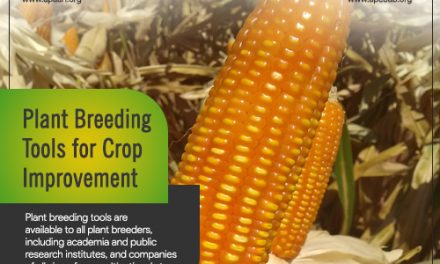Global agriculture is going through dynamic changes while responding to unpredictable weather, rising demand and issues of sustainability. The global food value chain has been impacted; the preferences of the consumer are changing from mere quantity of food to its nutritional quality. With the ongoing COVID pandemic and UN warning about global food reserve, the agro-based structure is burdened with enhancing crop production without compromising food quality.
Conventional breeding, due to its limitations of genetic base and time, is not surely a resolution to address the food and nutritional problems. Better quality rice and cassava exemplify how far we have come with growing disease resistant, climate tolerant and healthier crops through CRISPR-Cas9 which empowers the farmers also.
Rice is the most consumed staple food worldwide, but it accrues toxic metalloid arsenic from the soil. Gene editing is efficient in knocking out certain genes that limit the accumulation of arsenic in the grains. To address serious public health concerns, the targeted approach of selective mutations reduces the ubiquitous carcinogenic arsenic in rice.
Similarly, gene editing has a significant role in improving the cassava plant. It is the most popular staple food crop of Africa, consumed largely by the marginal and poor population. Cassava, being a sturdy crop, is well suited to tropical environments. Furthermore, it is easy and inexpensive to grow with greater productivity. However, it has its limitation. Having a toxic level of cyanide in its roots makes it less convincing as it may turn poisonous if not prepared well. It may even lead to irreversible paralysis or death in some cases. Research approves that new gene-editing techniques can make cassava safer and much hardier. Targeted genome editing can help in addressing pre- and post-harvest constraints for ruling out potent health risk. For example, robust genome editing can be used to develop cassava with waxy starch in combination with cassava that can flower earlier for ensuring food safety.
The giant success of above gene-edited crops opens greater avenues for growing healthy crops to strengthen the entire food value chain. Our government(s) need to be more resilient in designing policies and regulations for allowing penetration of such nutritious crops in the consumer markets.

Select Page

